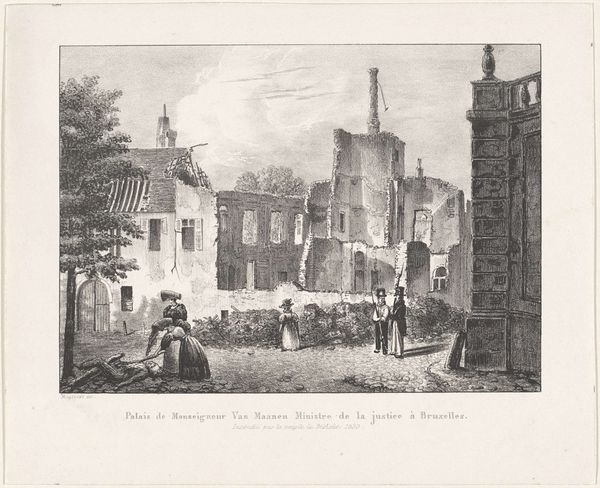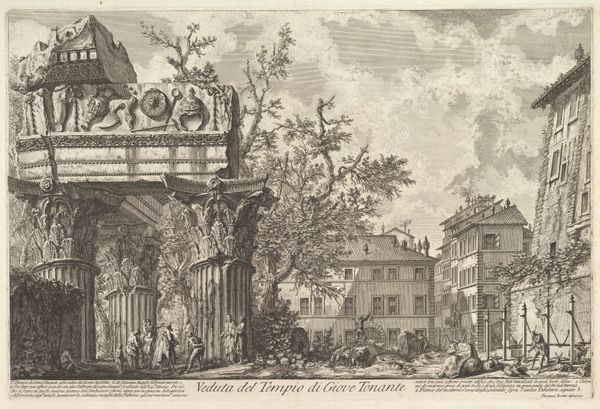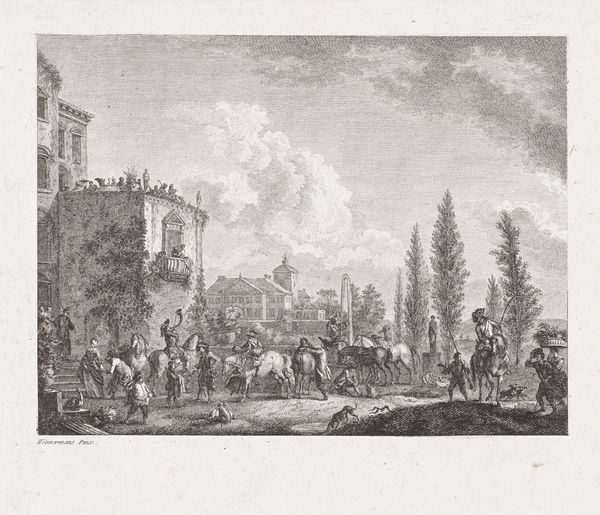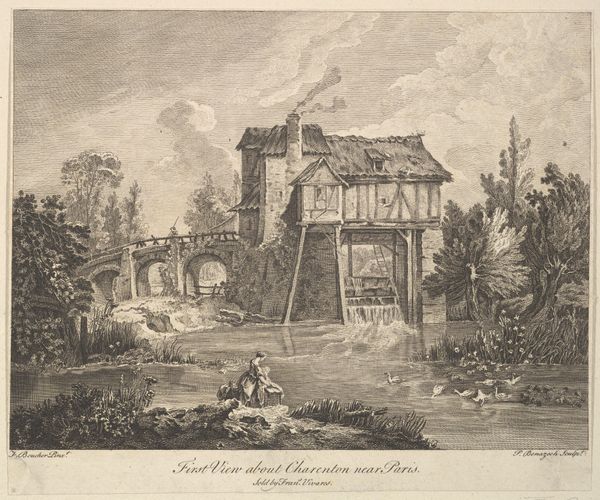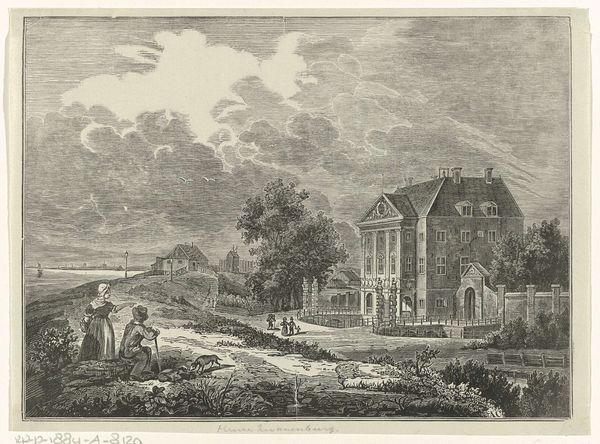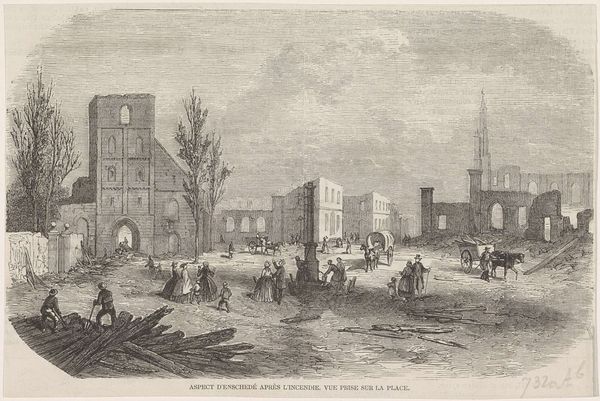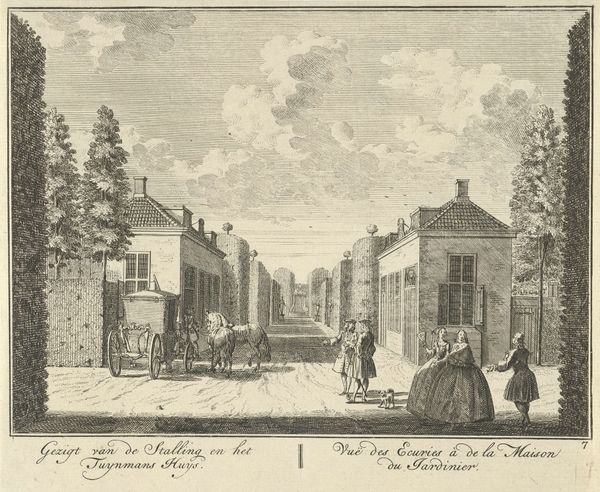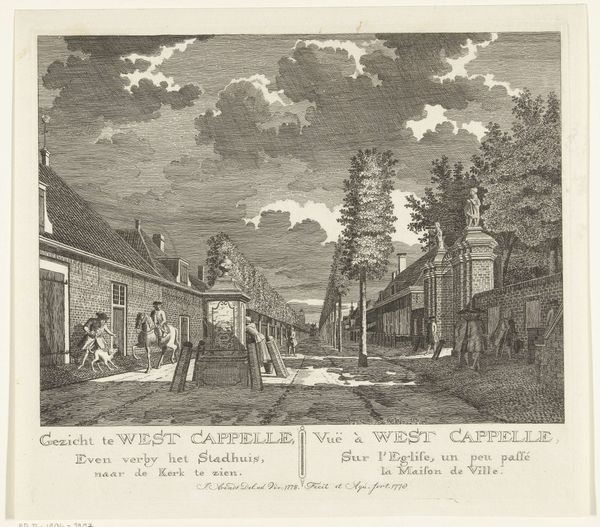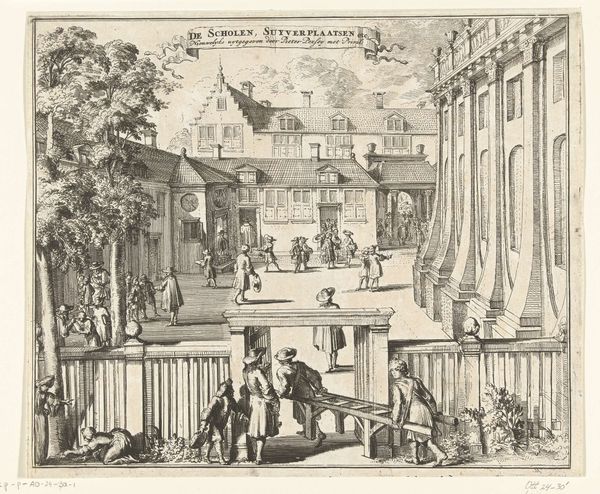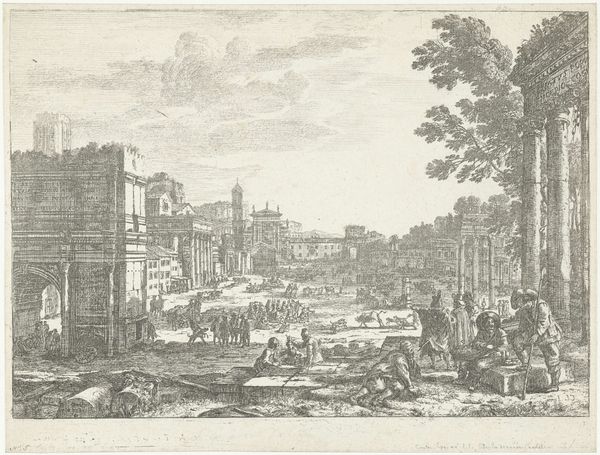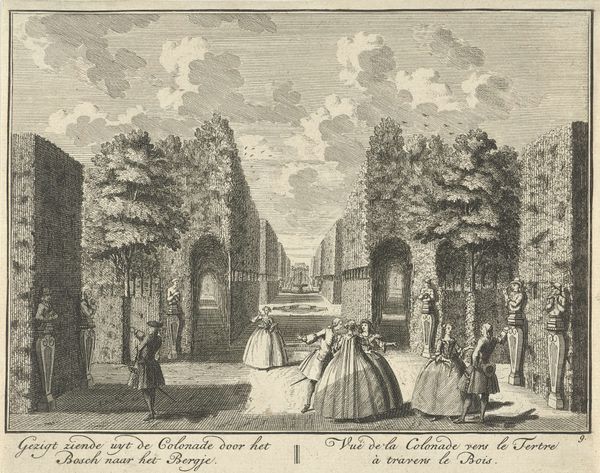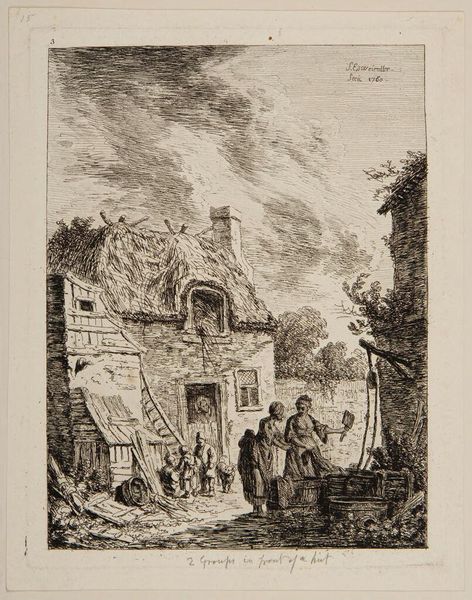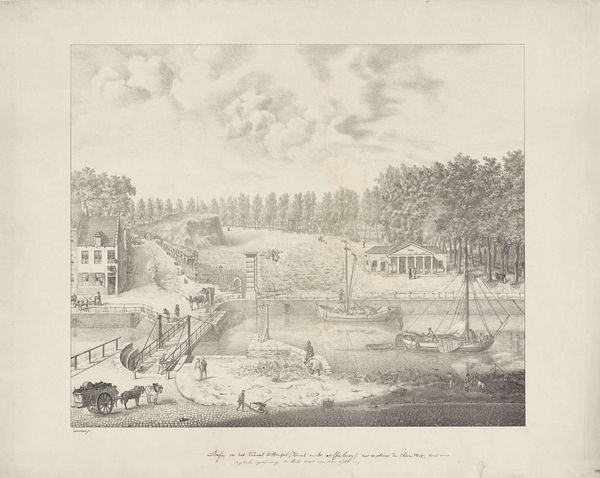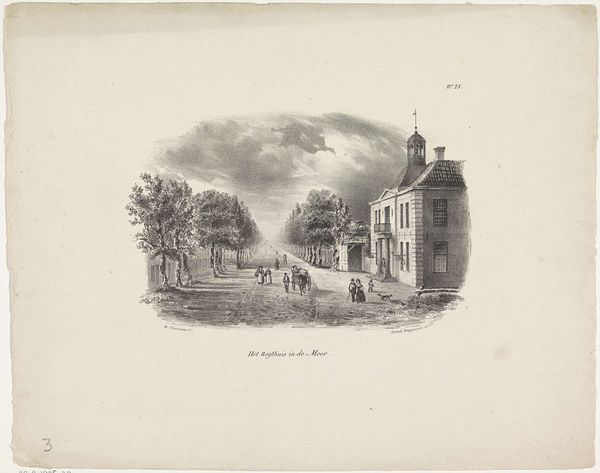
print, engraving
#
narrative-art
# print
#
old engraving style
#
romanticism
#
cityscape
#
history-painting
#
engraving
Dimensions: height 280 mm, width 374 mm
Copyright: Rijks Museum: Open Domain
Editor: We're looking at "Verwoeste ingangspoort van het park, 1830" by Gustave Adolphe Simonau, created sometime between 1830 and 1831. It’s an engraving, and the damage depicted really jumps out. It's fascinating and kind of haunting to see this grand entrance so battered. How would you interpret this work? Curator: It’s crucial to see this engraving as a political document. Simonau presents the aftermath of the July Revolution, specifically the battles fought around the park. Note how he focuses on the *public* face of the damage—the park, a space for civic recreation and royal display, is now scarred. Editor: So, the ruined gate isn't just aesthetic? It's symbolic? Curator: Precisely. The holes and damage visualized aren't mere destruction; they symbolize the collapse of the Bourbon monarchy and the uprising of the people. It reflects the tumultuous era in which the public challenged institutional powers. Look closely, what kind of mood does it evoke, considering the seemingly calm figures walking around? Editor: It's like life just carries on despite the upheaval... It shows resilience maybe? Or perhaps a sort of acceptance of this new, slightly damaged reality? Curator: Exactly. And consider how the medium – an engraving – allowed for the widespread distribution of this image. It served to reinforce a certain narrative, didn’t it? That’s something important to remember: this isn't just art. It’s political messaging. Editor: That's so interesting. It gives me a lot to think about how we display and interpret art with this historical context in mind. Curator: Indeed. And perhaps, to always remember the public role of art, and who gets to define that narrative.
Comments
No comments
Be the first to comment and join the conversation on the ultimate creative platform.
